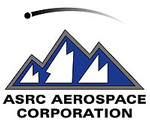|
|
| |

| LiDAR-based Landing navigation [Amzajerdian, et al. (2013). Lidar sensors for autonomous landing and hazard avoidance. In AIAA Space 2013 Conference and Exposition, p. 5312] |
|
| From the Editor-in-Chief |
Dear Readers,
In May 2019, NASA announced that it would pay Intuitive Machines $77 million to send five payloads to the moon. Intuitive Machines and other companies in its Commercial Lunar Payload Services program (CLPS) signed fixed-price contracts to deliver NASA payloads to the moon. Such contracts mean that if something goes wrong and costs increase, generally it is the companies, and not NASA, that covers the difference. However, when Intuitive Machines landed on the moon, NASA renegotiated the payment to nearly $118 million. NASA originally wanted Intuitive Machines to send its Odysseus mission to an easier-to-reach spot in the equatorial region of the moon, Oceanus Procellarum, a huge, scientifically intriguing dark spot on the near side of the moon. With future missions intended toward the moon’s south pole region, NASA asked Intuitive Machines to change the landing site for a location near a crater named Malapert A, the farthest south that any lunar lander had targeted. That change cost an extra $28.4 million. NASA also added almost $12 million to compensate for disruptions that companies experienced during the coronavirus pandemic and for changes in what it was sending on the mission [Chang, K. (February 22, 2024). Why did the bill to NASA grow by tens of millions of dollars? New York Times].
Recent successful lander missions to the Moon including those by private U.S. space exploration companies suggest new era of lunar operations that will command greater autonomy. This issue investigates the role artificial intelligence missions will incorporate with landing site selection and directed pathfinding routes to permanently shadow regions of the lunar south pole. Not only will lunar communications be limited, but lunar traversabilty will be challenged by complex crater-/boulder- dense terrain navigation. The two papers on lunar operations represent a contemporary special topic of modern space operations. JSOC contains peer-reviewed articles, comments and case notes written by leading scientists, professors, and practitioners in their respective fields of aerospace expertise. The editorial board seeks articles that demonstrate exemplary academic research of emerging trends in space technology and space operations fields.
Sincerely,
Ronald H. Freeman, PhD
Editor-in-Chief
July 1, 2024 |
Journal of Space Operations & Communicator, a quarterly online publication, serves as a forum for those involved in the space operations field to communicate with one another, share ideas and information that improve the way operations are carried out in space. The Journal is a crossdisciplinary scholarly publication designed to advance space communication as a profession and as an academic discipline. The Journal is distributed electronically without charge to users on a global basis. JSOC contains peer-reviewed articles, comments and case notes written by leading scientists, professors, and practitioners in their respective fields of aerospace expertise. The editorial board seeks articles that demonstrate exemplary academic research of emerging trends in space technology and space operations fields.
|
|
|
 |
|
2024 Workshop Preparation
“Museum Toulouse” Toulouse, France
CNES, the French Space Agency, will host the next SpaceOps workshop scheduled to take place June 18 - 20, 2024. This biannual event, which takes place in between the SpaceOps conferences, aims to explore new subjects, new paradigms, new issues related to space systems operations.To learn more about this event, contact the organizers:
|
|
 |
The
2025 SpaceOps Conference
will take place 26-30 May 2025
in Palais des congrès, Montreal, Canada.
The venue will be published soon. |
|
"Inspiring Humankind's Future"
|
|
|
| |
|
The "Journal" solicits papers and technical articles on all relevant matters of space operations for online publication. On request the "Journal's" international Peer Review team will review your paper according to AIAA standards. Please contact: Joachim J. Kehr, Editor SpaceOps News joachimkehr@aol.com or use the Communicator submission template |
| |
Founding Sponsor
ASRC Aerospace Corporation |
Platinum Sponsor
GMV SpaceOps Conference 2023 |
 |
 |
|
A range of unique sponsorship opportunities are
available to corporations, both at the subscriber level as well as a
limited number of Founding Sponsor openings that will give your
organization a strong association with the premier journal for space
operations. A partnership with us can deliver your business objectives,
strengthen corporate image and provide excellent marketing and PR
opportunities. Read more...
|



